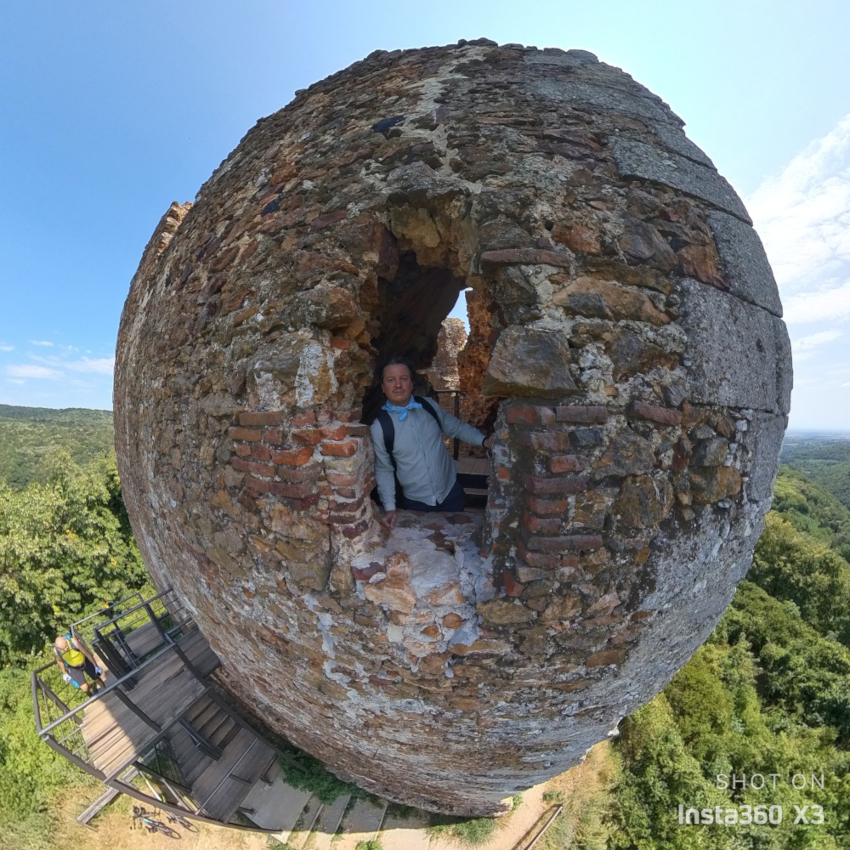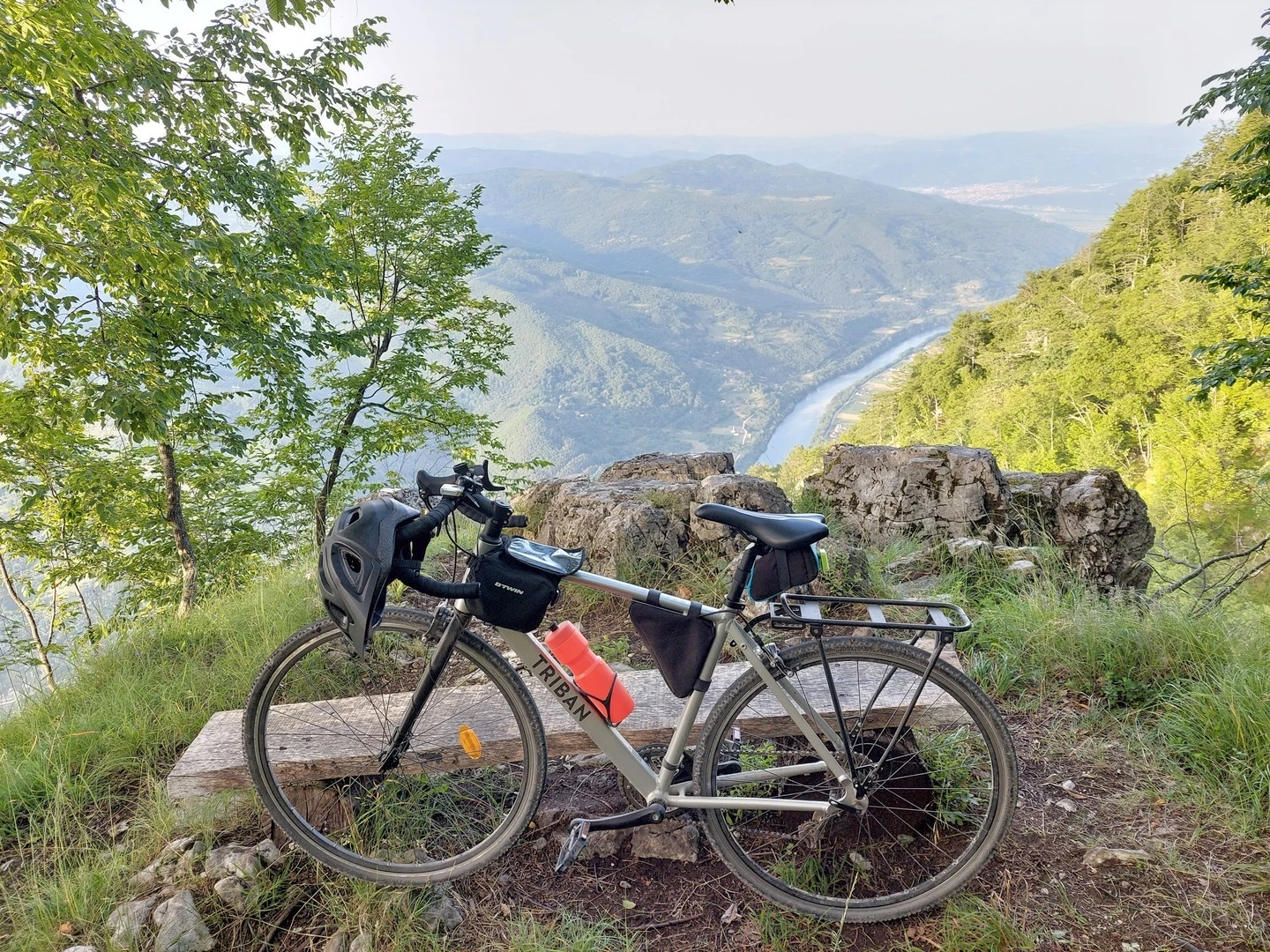My question was about benefits of openai search compared to kagi search. How is this link related to my question?
Sem
I am a software engineer living and working in Belgrade, Serbia. My hobbies contain a lot of things including cycling, bikepacking, photography and quantum computations.
All the photos in my posts are made by myself (if not specified other) and are shared under CC-BY 4.0.
- 0 Posts
- 23 Comments
What are benefits of using openai search when we already have Kagi that is much more privacy a friendly, is ads free and provides the same functionality?

 22·11 days ago
22·11 days agoWhat do you think, how long should we wait until the overflow in the debts database makes the value negative?

 33·1 month ago
33·1 month agoI think it can be done like a NFTs on top of Bitcoin. In this case evey archived page is NFT and all the blockchain is available, so there is no centralized cite. If each action will require some computations (PoW) then ddos attack or spam attack will be very hard to implement.

 42·1 month ago
42·1 month agoI think that proof-of-work approach to blockchain can make ddos attacks much harder, but I’m not an expert too :)

 255·1 month ago
255·1 month agoSounds like a potential application for a blockchain techs, that allows to do verifications, voting and consensus.
It supports via GMS sandbox. So, I can install google camera, maps, bank app, insta360 app, an app for my bike computer, etc. But in that case I prefer to use Proton VPN that hides my real IP from all these apps and also block some tracker endpoints.
I have Pixel with GrapheneOS and I tried most of FOSS camera apps, but all of them are still far behind the GCam. I hope one day there will be a good replacement, but not today.
I’m using Organic / OsmAnd for most of use cases and daily navigation. But if you need to find a specific office, shop, food or ATM nearby you still need GMap from time to time…
And for the latter problem, don’t use such apps except in closed environments or without internet access.
While that is a right answer, I do not want to avoid such apps because I need them. I need my mobile bank app, I need google camera, sometimes I need Google maps, etc. For me using VPN to hide my real IP from greedy apps and to hide DNS requests from the cracked public WiFi is still a good tradeoff between security, privacy and my own user experience.
But most spots don’t have the resources or expertise to analyze and sell or otherwise misuse your logs.
Most spots don’t have also the resources or expertise to secure their own spot. As I remember, cheap routers used in public places may contain a lot of vulnerabilities.
encrypted DNS
Will it help me if I’m using LbreTorrent do download piracy content on my phone? Or how it would help me to hide my location from mobile apps that extract location from IP?

 262·2 months ago
262·2 months agoAs I can understand from EFF articles, the problem is not only in MAGA guys and their conspiracy but in KOSA proposal itself.
https://www.eff.org/deeplinks/2024/09/new-us-house-version-kosa-doesnt-fix-its-biggest-problems

 291·2 months ago
291·2 months agoFor me the problem is more in GPL violation: they distribute blobs under GPL3, user made a request of the source code by creating an issue, but they ignored that request. It is not only about “you have to fix it” versus “just fork it” imo.
I asked the same question in c/privacy, you may find some answers useful: https://lemmy.ml/post/15694049 For myself I chose plausible

 2·3 months ago
2·3 months agoNo, I have two different things:
- org-mode files with schedule, diary, tasks, etc.
- knowledge base, org-roam (orgnote). I have a single base but it contains graphs about topics and these graphs are not connected
I like that approach, because I use orgzly-reviwed on Android with a notifications. And because it is simpler to maintain knowledge base.

 2·3 months ago
2·3 months agoYes… org-mode is more than 20 years old… It is a price of flexibility: I have a strong feeling that one can adjust org-mode to any workflow. But I do not use even a third of the org specification. There are a lot of cool blog posts like “org mode quick start” or “org mode basics”, I would recommend to start from such posts, not from a documentation.

 201·3 months ago
201·3 months agoFor me one of the most flexible and mature way to knowledge base, tasks and notes is an org-mode.
I have two main workflows. The first one is task management. I have a lot of recurring tasks with tags, deadlines, schedules, etc. All of them are living in org-files in my Nextcloud. On Android I’m using orgzly-reviwed for sync via WebDAV, on my work I’m using organice (via WebDAV) as a “web-version” and also I’m editing my notes in emacs on my laptop (but actually any text editor could be used).
The second one is a knowledge base. I’m using org-roam locally (and with a localhost web server, built in into emacs) and orgnote for Android/Web + synchronization. My knowledge base is Zettelkasten-based.
Orgzly-reviewed: https://github.com/orgzly-revived/orgzly-android-revived
Organice: https://github.com/200ok-ch/organice
Orgnote: https://github.com/Artawower/orgnote
Orgnote provide a way to encrypt all notes by your own key/password. With orgzly I’m relying on Nextcloud encryption.

 1·3 months ago
1·3 months agoIf I already use Pandas for processing my data in-memory, CoW can significantly improve the performance. That was my point.



And that is very strange for me. Under the news about AI-search from OpenAI I asked about comparison with AI-search from Kagi, but got a lot of downvotes and a link to the post where the author express his negative opinion about AI.